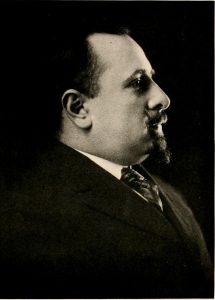
(July 4, 1883-Apr. 20, 1946). Born on the island of Ischia in the Bay of Naples, the son of an army officer, Lapenta lived in Naples’ English colony. After receiving his medical degree from the University of Naples in 1906, he immigrated to the United States to continue medical studies at Harvard and in Chicago.
Recruited by local Italians to serve their community, Lapenta moved to Indianapolis about 1911 and for the next 30 years served its medical needs. Although a recognized specialist in abdominal surgery, who became senior surgeon at , he was best known for his discovery of a serum to control hemorrhage. Marketed commercially, it had great practical value during World War I and for controlling hemophilia.
Recipient of various honors, Lapenta was the most distinguished member of the local Italian community. He became a fellow in the Royal British Society of Arts and Sciences (1922) and was appointed a knight (1923) and knight officer (1930) of the Royal Crown of Italy. He was also chairman of the board of trustees and on the council of examiners for the United States chapter of the International College of Surgeons. Locally, he was a benefactor of Cathedral High School.
Lapenta was appointed Italian consular agent for the state in 1921. He encouraged the formation of Italian societies and lectured on Italian foreign and domestic policy. In June 1941, he was ordered deported and, when Italy declared war six months later, he was interned as an enemy alien at . He remained there for 16 months, devoting time to experiments on artificial blood plasma. A war casualty without going to battle, Lapenta died in Beech Grove and was buried in St. Joseph Cemetery, Indianapolis.

Help improve this entry
Contribute information, offer corrections, suggest images.
You can also recommend new entries related to this topic.